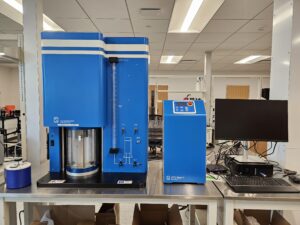
Description
The SRC-100 system is a fully automated testing platform that can simulate the dynamic response of soil and rock formations to seismic loads, providing a realistic representation of in-situ soil behavior. It is equipped with laser sensors to perform high-precision, high-accuracy testing in accordance with the most recent international standards and guidelines. The system features advanced hardware and software components that allow for precise control of the test conditions and real-time data acquisition and analysis. This ensures that the results obtained from the system are accurate and reliable and can be used to make critical design decisions. The GCTS Soil Resonant Column and Dynamic Soil Triaxial Testing System combine the features of both resonant column and torsional shear devices into one elegant system. By utilizing all available options, this system is capable of the full spectrum of modulus measurement, ranging from ultra-low strains to high strains with significant overlap.
Testing Ranges
• 2.33 N-m torsional load capacity
• 500 Hz maximum resonant test frequency
• 50 Hz maximum torsional shear test frequency
• 0 to 0.01 rad. angular deformation range
• 0.5 x 10-6 rad. angular deformation resolution
• ±25° maximum rotational stroke
• 25 mm axial displacement range of torque motor
• 10 kN load frame capacity
• 50 mm load frame stroke
• 70 mm maximum specimen diameter (solid or hollow)
• 160 mm maximum specimen height
• 1,000 kPa (150 psi) maximum confining pressure
• Floating drive and measurement system to allow for large angular and axial deformations
• Easy-to-use software to automatically perform resonant column & torsional shear tests
• Load frame allows for specimen consolidation before testing and anisotropic stress conditions.
• Optional platens for S-wave velocity measurements are available
Material Properties
This enables them to evaluate the effects of several soil parameters, such as
• Void ratio
• Confining pressure
• Strain amplitude
• Number of load cycles on shear modulus
• Material damping
Field Applications
• Geotechnical strength and stability analyses
• Measuring soil response under cyclic loading
Relevant Standards
• ASTM D4015 Standard Test Methods for Modulus and Damping of Soils by Fixed-Base Resonant Column Devices
